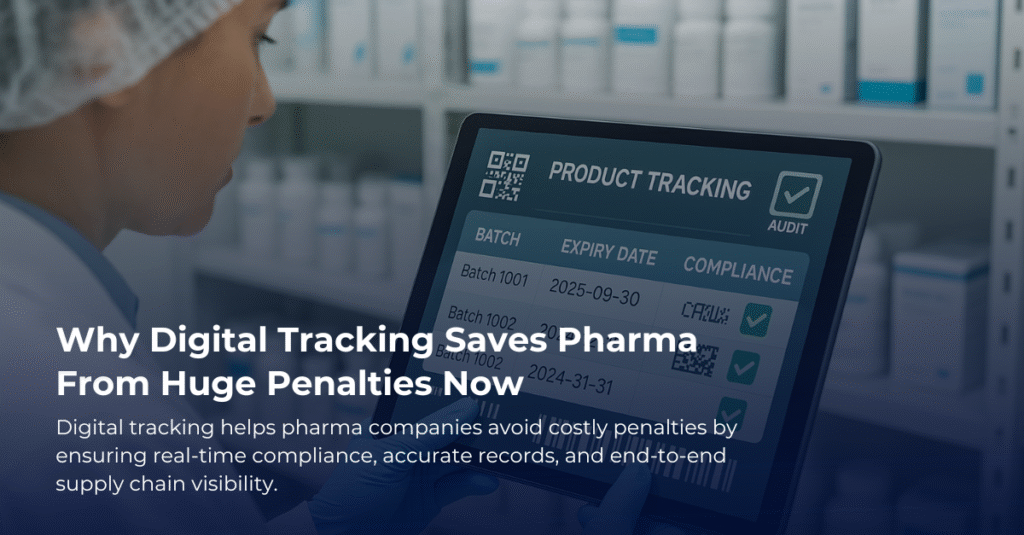Pharma Distribution Compliance: Why Digital Tracking Prevents INR Crore Penalties
Have you ever thought about what goes into getting a medicine from a factory to your local pharmacy? Many people assume that once a product is made, it just gets shipped out. But as a business owner in the pharma industry, you probably know better than that. There’s a lot of regulation and compliance involved. You might have heard about the importance of digital tracking in pharma distribution and how it can save companies from facing hefty penalties. So, let’s dig into that over our coffee.
Understanding Compliance in Pharma Distribution
First, let’s clarify what compliance means in the context of pharma distribution. Simply put, compliance refers to following the rules set by regulatory bodies to ensure that medicines are distributed safely and ethically. In India, for instance, non-compliance can lead to penalties reaching INR crores, which is sufficient motivation for any business owner to pay attention.
Why Digital Tracking Matters
You might wonder, why the fuss over digital tracking? Imagine if someone could track your package all the way to your doorstep. You’d feel more at ease, right? Now think of medicines traveling through multiple distributors before reaching pharmacies. Here, digital tracking ensures that every step of the process is documented. This not only helps in tracing back any issues but also provides transparency—a key requirement for compliance.
Real-World Examples
Let’s take a look at a couple of real-world examples to illustrate the point:
- Case Study: A Major Pharmaceutical Company – Recently, a large pharma company faced fines because some of its medicines were found not to meet safety standards. They lacked proper tracking records that demonstrate how medicines were stored and transported. In contrast, another company effectively used digital tracking. When a batch was flagged for safety concerns, they quickly traced it back through the distribution chain, identified the problem, and made necessary recalls. This proactive action saved them from severe penalties.
- Case Study: A Smaller Distributor – A small-scale distributor opted not to invest in digital tracking solutions to save costs. Unfortunately, they ended up facing a substantial fine when an audit revealed discrepancies in their inventory records. The cost of compliance felt burdensome, but in the end, it was the decision to avoid digital tracking that cost them much more.
Cost Savings and Peace of Mind
Now, let’s break it down into tangible benefits. Implementing digital tracking doesn’t only keep you compliant; it also saves you money. When you can quickly find the source of a problem or avoid costly recalls, you protect your bottom line. Think of it as an insurance policy that not only gives you peace of mind but also keeps your business operating smoothly.
Making It Work for Your Business
If you’re considering stepping into the world of digital tracking, here are a few pointers to get started:
- Invest in Technology: Look for user-friendly tracking systems that can integrate with your current processes. This doesn’t have to break the bank.
- Train Your Team: Ensure your staff understands how to use the technology. It’s not just about having a system; it’s about using it effectively.
- Stay Updated: Regulations can change, so staying informed about compliance requirements is crucial. Regular training sessions can help.
Final Thoughts
Remember, navigating pharma distribution compliance might seem complicated, but with digital tracking, you are taking a positive step to protect your business from severe penalties. It’s about ensuring that every medicine is accounted for, safe, and effectively reaching those who need it. So, as you finish your coffee, think about what you can do today to enhance your compliance efforts and prevent potential issues down the line. Your future self will thank you for it!








